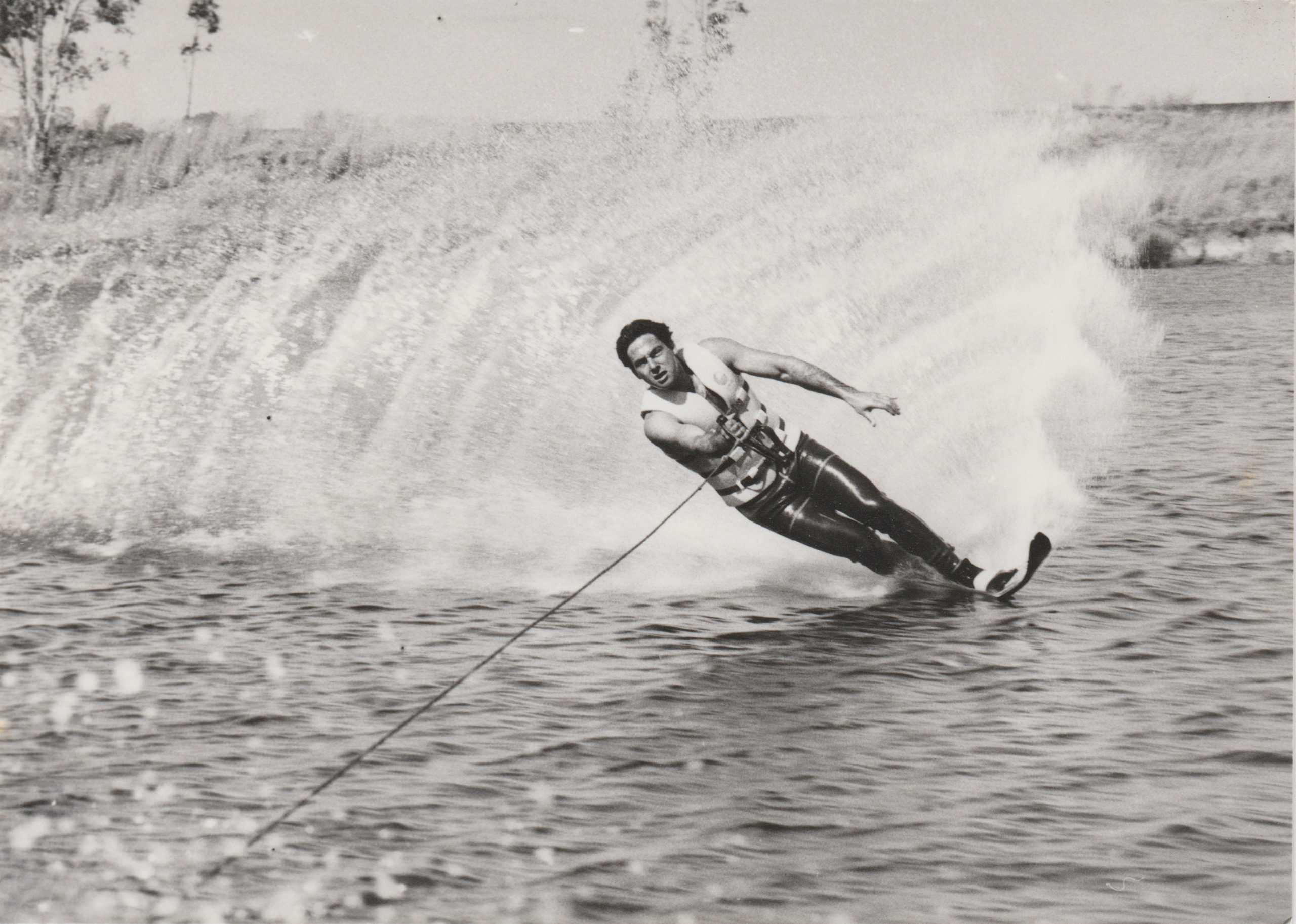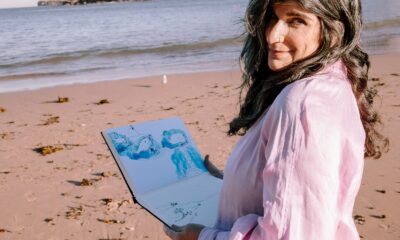
Sport

Born risk taker takes a chance on an autobiography
Peter Lindenberg, former South African barefoot water skier, powerboat driver, and car racer, describes himself as a “born risk taker”. “I was abnormal,” he says. “I would literally put my life on the line if there was a lap to go in a race.”
Coming second was never an option for Lindenberg in his more than four-decade-long racing career.
Whether he was breaking records, earning Springbok colours, winning world championships in barefoot water-skiing, or triumphing in powerboat or car racing, he would go Flat Out and Fearless, the title of his new book.
It documents the life of the Johannesburg-born Lindenberg, who received national colours on 39 occasions and has been named in the South African Hall of Fame. “My life has been about bouncing back from crashes, dramas, and other obstacles,” he said at the launch of his book at Exclusive Books in Rosebank Mall on 23 November.
Lindenberg hopes that the book will encourage people to bounce back, an ability he believes is important, especially in the post-COVID-19-pandemic era. “Many people have problems,” he said. “The harder you hit the deck, the higher you can bounce back.”
Lindenberg wrote the book to share his story with others. “I wrote it in the most honest way I could, not incriminating people who maybe should have been incriminated,” he quipped.
He said the book should have been released long before this, but a few stumbling blocks intervened.
He found some parts difficult to write because he wanted to be honest. “I did some things wrong, and I’ve admitted to them. While writing the book, I often cried.
“The real takeaway for the reader is that in 99% of situations, an opportunity exists for an alternative way forward. Most importantly, don’t bother with stuff you can’t control. Get on with what you can influence.
“While we were putting the book together, I was fortunate that I had my last [car racing] championship,” Lindenberg said. “It was really exciting racing, and I won. I was 66 years old.”
He previously missed two events when he couldn’t travel because of COVID-19 restrictions, and then he contracted the virus. “I was literally knocking on the door. When I started to feel a bit better, I was still lying in hospital, and I thought, ‘You know what, they still haven’t published the book. I’m going to write another chapter because I managed to survive COVID-19 as well.’”
The cover of the book is like a montage. The picture on the top left shows Lindenberg in a boat before the days of Formula One races. “That was one hell of a boat. It almost killed me. It could run at 220km an hour.”
The photo next to it portrays Lindenberg triumphing at the British Grand Prix in Nottingham, England, in 1989. Another image depicts Lindenberg in one of his three favourite race cars – a particular Mustang from 1999. “That car was written out of the rules after one year, and the book tells how I got it.” A further snapshot shows Lindenberg in a wheelchair at Johannesburg International Airport after suffering a brain haemorrhage while on a flight.
Lindenberg was born in Johannesburg in 1955, and said he was fortunate to have a family who stood by him when he made mistakes. “Everybody thinks team sports are rugby, soccer, cricket, etc. Meanwhile, what I did was a team sport. It’s just that I was the guy at the top of the team. You had to surround yourself with the right people and, importantly, you had to trust them because if one of those guys made a mistake or didn’t do their job properly, you would die. It’s as simple as that.”
Lindenberg thanks all his competitors in the preface to the book. “Without competitors, I wouldn’t have won. Having them is what pushes you to win.”
Lindenberg said his dad was the driving force behind his water-skiing performance, but he had no history of being involved in any kind of water sport. “When it came to racing, I created the opportunities myself, but I needed other people to believe in and back me. That’s one of the most important things if you do what I do.”
Someone phoned Lindenberg one night and said, “I’ve bought you a Formula One boat.”
“I’ve never sat in a Formula One boat. I’ve never really watched a full Formula One race,” Lindenberg responded.
Nevertheless, the person believed in Lindenberg’s ability, and gave him his first Formula One boat. “A lot of my driving ability must have somehow been in-born because I won my first boat race, and I won my first ever Formula One race,” Lindenberg said.
Lindenberg also used to steal his mom’s car and drive sideways on the sand road near their house. “I think that helped as well,” he laughed.
The book describes the distractions Lindenberg often faced, pulling him away from his goal, but he managed to keep his eye on the ball.
On the day of his British Grand Prix win in 1989, the wind howled, and the race was delayed. Lindenberg walked past a place where bets were being taken, and saw he was the fourth favourite, at 7/1 to win the race. “Sh-t, I’m a good bet here,” he said to himself. “I’m going to win this race.”
He scurried back to his wife, Debbie, and said, “How much money do we have?” She counted it, and said they had £7 000.
When Lindenberg asked her to bet all their money on him winning the race, she said, “You’re crazy, we still have another week and a half before we go home.”
Debbie, nonetheless, was able to bet only the amount of money the bookmakers were prepared to accept, which was £3 000.
Lindenberg ended up winning the race and receiving his biggest payday. “If Debbie was cross in the beginning, she wasn’t so cross afterwards,” he said to laughter from the audience.










